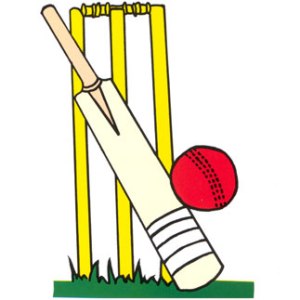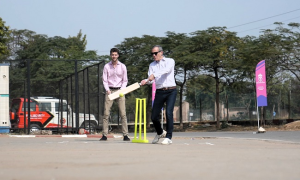“To err is human”. This idiom is very popular among the mass; many people blindly believe that this is the complete idiom and has a very transparent meaning. Now let us put the same context with the umpires of the cricketing world. There have been umpteen numbers of incidents in history which actually show that the ever reliable umpiring giants hired by the ICC are prone to make mistakes too.
Be it Steve Bucknor, Asad Rauf, Billy Doctrove or even Simon Taufel; they all have made some high profile mistakes in their umpiring career. Let us start seeing some very memorable umpiring mistakes for Indian players.
We all know that the Master Blaster – Sachin Tendulkar is jinxed with wrong umpiring decisions. Starting in 1997, he was given out on a no ball bowled by Frankline Rose of West Indies at Bridgetown wherein India lost the test match by 38 runs only. There was this test match in 1999 where due to a controversial obstruction by Shoaib Aktar, Sachin was run out. Apparently the obstruction rules of pitch were not applied by Steve Bucknor. At Perth in 2000, in a must win situation for India to get qualified for finals he was wrongly given caught behind off Waqar Younis. Again at the Eden test against Pakistan, he was given a wrong caught behind decision by Steve Bucknor and Abdul Razzak was the bowler. In the last match of England ODI series 2007, Alee Dar had given him a wrong caught behind decision. He claimed to have realized his mistake but did not change his decision. After the match was over he gave his highly criticized explanation, “I knew he was not out. But I don’t have a habit of changing my decision”. Skipper Saurav Ganguly was wrongly given out due to leg before off bowler Paul Collingwood by Ian Howell in the test match against England played at the Kennington Oval. In another incidence, Rahul Dravid was given out wrongly on a no ball by Corey Collymore of West Indies by Simon Taufel in the first Test match played at Antigua.
These mistakes when made not only upset the dismissed batsman but also sometimes changes the whole outcome of the match. So much for cricket being unpredictive! These kinds of wrong decisions might lessen the sportsmanship in players. Further, these lead to bans and fines being levied on players for their indecent behavior and disregard for on-field umpire. Considering all these situations, the International Cricket Council (ICC) introduced the Umpire Decision Review System (UDRS) on a trial basis in Tests in June 2008 which mentioned that the teams were given permission to challenge on-field umpire decisions and refer them to a television umpire. The maximum number of opportunities given is only 2 per innings. The system would decrease human errors in the game to a certain extent and would ensure that the players do not get a raw deal. The only controversial issue with the UDRS is the technology costs involved have to be paid by hosts and many countries are not accepting this condition.
Let’s hope that the newly introduced system serves its purpose truly.
Tags: Cricket, ICC, International Cricket Council, Review Systems, Technology, UDRS, Umpire Decision Review System, Umpiring Errors











